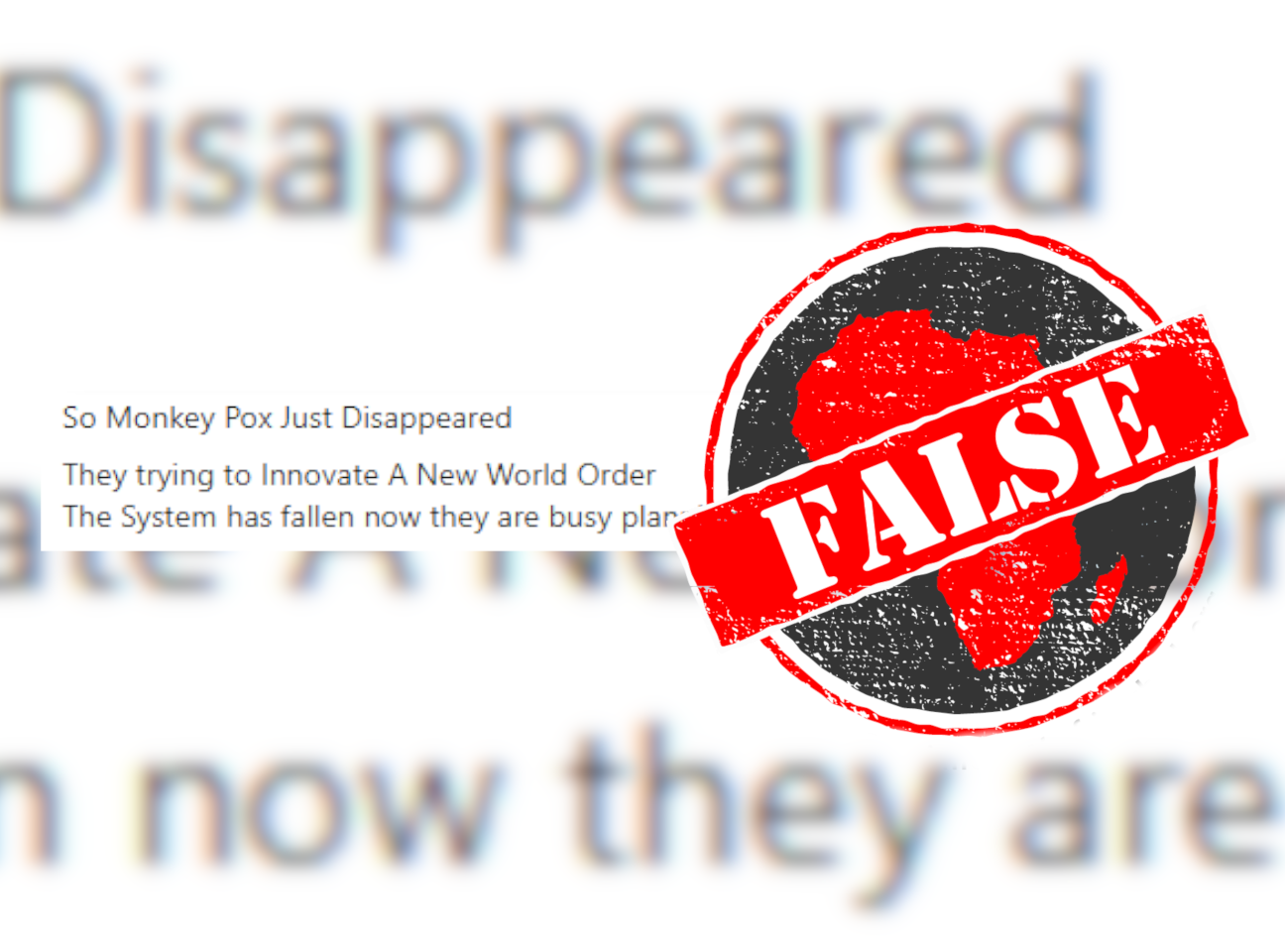IN SHORT: Posts on Facebook claim that the disease monkeypox – much in the headlines in mid-2022 – has “disappeared”, hinting that there is something sinister about the virus or the way it was reported. But this isn’t true. People are still contracting monkeypox, though significantly fewer than earlier in the year.
A series of posts on social media in October 2022 claim that monkeypox “just disappeared”.
“It disappeared as fast as Faucci,” one post reads, referring to the controversial director of the US’s National Institute of Allergy and Infectious Diseases, Anthony Fauci, who is also US president Joe Biden’s chief medical adviser.
Another post implies that monkeypox was faked. “The play stops when everyone leaves the room … It’s that simple,” it reads.
Some of these posts have received considerable attention, with users commenting in agreement, hundreds engaging, and thousands sharing them.
But has monkeypox really disappeared, just months after its mid-2022 outbreak? We checked.

What is monkeypox?
The disease monkeypox is caused by a virus that is passed on by close contact with infected people or animals. It is related to the smallpox virus, and also causes a rash and a fever, but usually with milder symptoms.
Monkeypox can be fatal, with 3 to 6% of cases resulting in death. The smallpox vaccine prevents monkeypox.
Monkeypox is not a newly discovered disease. It was first identified in 1970 in the Democratic Republic of the Congo, and cases have since been reported across West and Central Africa.
Unusually, most of the cases in the 2022 outbreak have been in the Americas and Europe, or in people who have travelled to these places, rather than Africa.
Numbers have declined, but monkeypox still around
The World Health Organization (WHO) publishes regular updates on the numbers of reported cases of many diseases, including monkeypox.
According to data published on 27 November, the WHO had recorded just over 81,000 confirmed cases of the disease since the beginning of 2022. Around another 1,500 probable cases were also reported. This is when a person shows symptoms of the disease, but a lab test has not confirmed it.
At its peak in August, over 1,000 cases were being reported per day globally, measured as a 7-day rolling average. The number of new daily cases has mostly steadily decreased since then. As of 9 November, the daily case count had decreased to around 180 per day. Most of these more recent cases were reported in the US and Brazil.
In late October, WHO director-general Tedros Ghebreyesus said that the outbreak “continues to constitute a public health emergency of international concern”.
Contrary to rumours on social media, monkeypox numbers have declined, but the disease definitely has not disappeared.
Republish our content for free
For publishers: what to do if your post is rated false
A fact-checker has rated your Facebook or Instagram post as “false”, “altered”, “partly false” or “missing context”. This could have serious consequences. What do you do?
Click on our guide for the steps you should follow.
Publishers guideAfrica Check teams up with Facebook
Africa Check is a partner in Meta's third-party fact-checking programme to help stop the spread of false information on social media.
The content we rate as “false” will be downgraded on Facebook and Instagram. This means fewer people will see it.
You can also help identify false information on Facebook. This guide explains how.


Add new comment